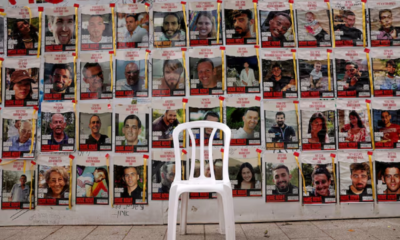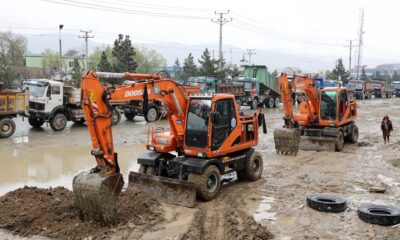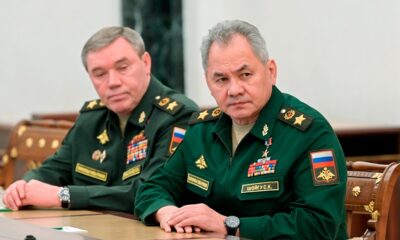Latest News
UNAMA chief briefs UNSC, says humanitarian situation remains a ‘grave concern’
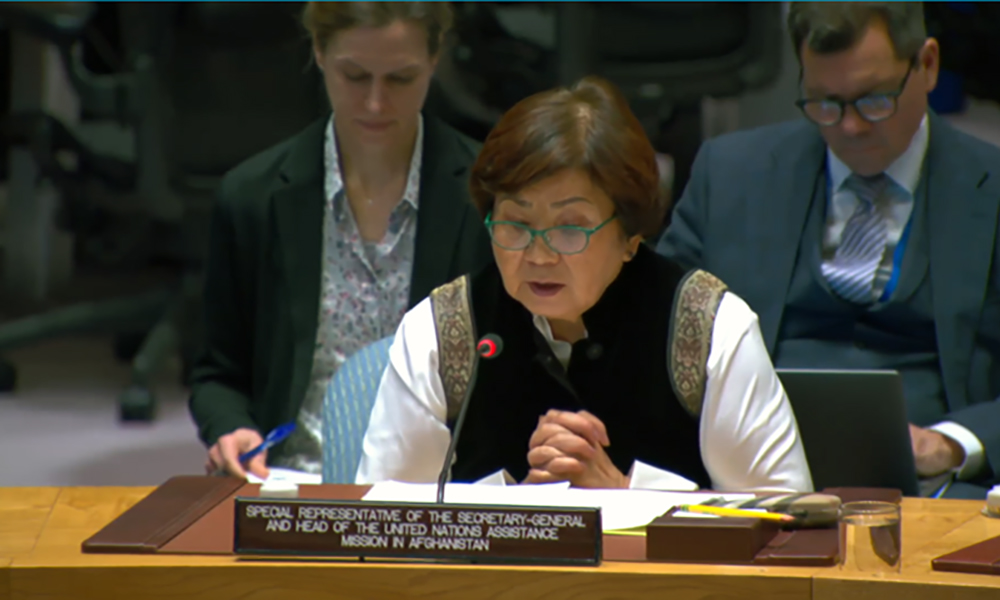
UN Secretary-General’s Special Representative for Afghanistan, Roza Otunbayeva briefed the United Nations Security Council on Wednesday and said the humanitarian situation remains a grave concern; and that as another winter approaches, more than 20 million people will depend on aid.
She also said key features of the human rights situation in the country are “a record of systemic discrimination against women and girls.”
According to her, there was “repression of political dissent and free speech, a lack of meaningful representation of minorities, and ongoing instances of extrajudicial killing, arbitrary arrests and detentions, torture and illtreatment.”
She thanked the Security Council for considering the situation in Afghanistan “several times over the past month,” and that “in a world of multiplying crises, I am grateful for this ongoing attention to Afghanistan.
“Many Afghans inform me that they fear being forgotten, as they have been in the past. I strongly believe that my role, and that of UNAMA, is to prevent this from happening.”
According to her, the lack of progress in resolving human rights issues is a key factor behind the current impasse and that accepting and working to uphold the international norms and standards, as set out in the UN Treaties that Afghanistan has ratified, “will continue to be a non-negotiable condition for a seat at the United Nations.”
She noted however that the Islamic Emirate “continue to maintain a generally good level of security,” although unexploded ordnance remains a significant concern.
According to her, the Shia community remains at disproportionate risk of harm – especially by ISIL-KP (Daesh).
“At the same time regional countries remain deeply concerned about additional possible threats emanating from inside Afghanistan. In particular, Pakistan remains convinced that the de facto authorities (IEA) have done too little to contain the Tehreek-e-Taliban Pakistan, which has claimed major recent terrorist attacks inside Pakistan.
Otunbayeva said she was in Islamabad last week and raised the issue of the expulsion of undocumented Afghans living in Pakistan.
She said Pakistan’s decision has led to a deterioration of relations between the two countries; and that “it is essential that both sides take measures to prevent further deterioration and begin working on issues of common interest.”
According to her, almost 500,000 Afghans have returned home and that “a consortium of humanitarian actors” are working constantly alongside the IEA to provide these families with assistance.
“This has proven to be an effective cooperation and the de facto authorities IIEA) have responded with great professionalism despite lacking resources. The returnees are the poorest of the poor. 80,0000 of them have nowhere in Afghanistan to go. The human rights consequences for women and girls forced to return are particularly severe,” she said.
Otunbayeva also raised the issue of education and said while the international community has called for the ban on girls’ education to be reversed, the overall quality of education had deteriorated.
She also raised the issue of climate change and its effects on Afghanistan.
“Afghanistan is one of the most climate change-affected countries in the world while it has contributed least to its causes. I continue to believe that the de facto authorities (IEA) need to be part of this global conversation.”
She went on to say that addressing Afghanistan’s climate crisis should transcend politics – especially as the lack of water from recurring drought has reached a level of urgency that is felt across the country including Kabul.
“The de facto authorities (IEA) have demonstrated a desire to engage with the international community on this issue.
“I urge all of us to find ways of including Afghanistan in future meetings on climate change,” she said.
In terms of the UN’s future approach to dealing with the IEA, she said the organization should be guided by two factors; a durable and more detailed international consensus on Afghanistan and making far greater use of the IEA’s willingness to engage in dialogue with members of the international community.
“Dialogue does not legitimize. It can be used to express disapproval yet encourage change,” she said and that “there must be more direct engagement with the de facto authorities (IEA), including in Kabul.”
The IEA has not yet commented on Otunbayeva’s report.
Latest News
Three road construction projects launched in Kabul
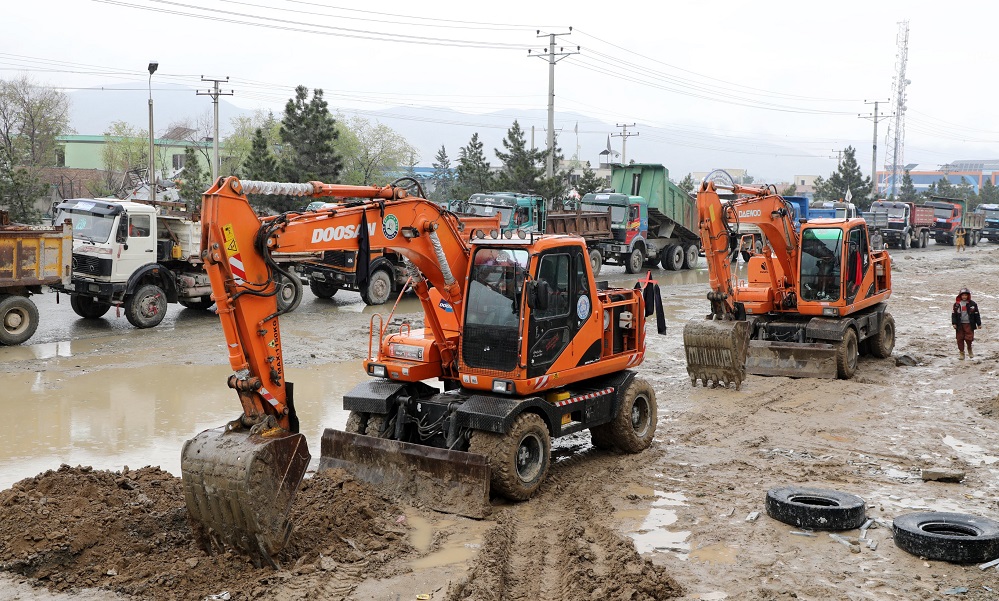
Three road construction projects worth about one billion Afghanis started in capital Kabul on Saturday.
The projects were inaugurated by Deputy Prime Minister for Economic Affairs Mullah Abdul Ghani Baradar.
The projects are: the second phase of Kotal Khairkhane road, the first part of the Shahid square to Qasaba, and the Airport road to Gumruk.
In the inauguration ceremony, Mullah Baradar said that Kabul municipality is working hard to beautify and regulate the city, and people should cooperate with the government in protecting public benefit projects.
He directed the officials of Kabul municipality to complete the mentioned projects on time and with good quality.
The second phase of Kotel Khairkhaneh road is 2.5 kilometers long and 60 meters wide. Thie road will cost 364 million Afghanis and will be completed in 20 months.
The Shahid square-Qasaba road is 1.8 kilometers long and 45 meters wide, which will be built at a cost of 175 million Afghanis in one year.
The Airport-Gumruk road is 2.7 km long and 60 meters wide, which will be completed at a cost of 407 million Afghanis in 20 months.
The projects are funded by Kabul Municipality.
Latest News
Russian defense minister says main threat for SCO countries emanates from Afghanistan
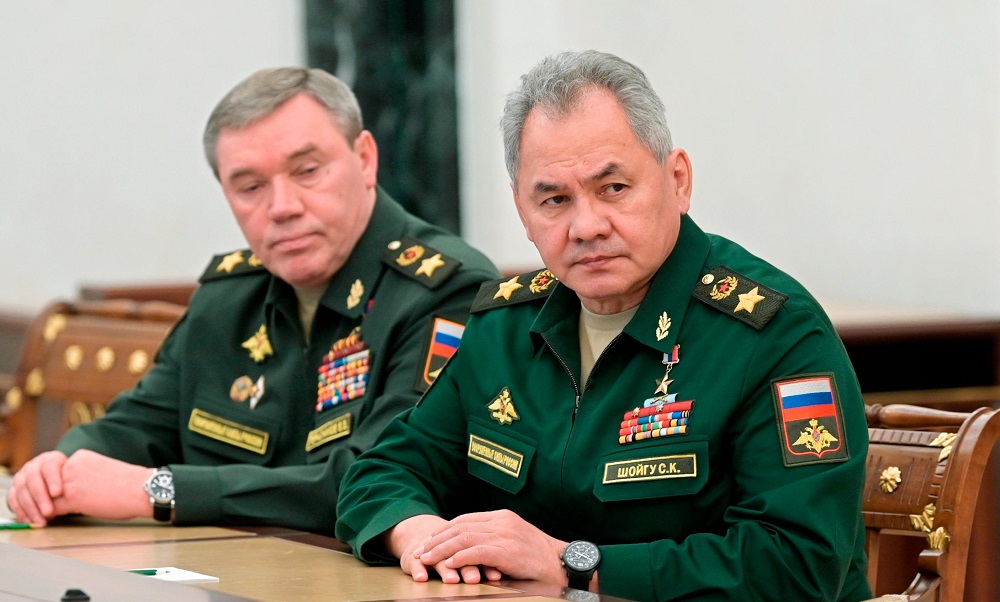
Russian Defense Minister Sergey Shoygu said on Friday that the main threat for the Shanghai Cooperation Organization (SCO) members emanates from Afghanistan where international terrorist groups find shelter due to unstable and indefinite political situation.
Speaking at a meeting of the SCO defense ministers in Kazakhstan’s capital Astana, Shoygu said Washington has stepped up efforts to restore its positions in Central and South Asia that were lost after the withdrawal of coalition troops from Afghanistan, Anadolu Agency reported.
The military chief called “unacceptable” the deployment of the American military infrastructure in the region, arguing that intentions should be regarded as “a direct threat to stability in the SCO space.”
According to him, the US is trying to impose a new security system in the Asia-Pacific region for dominance.
This comes as the Islamic Emirate has repeatedly emphasized that it does not allow anyone to pose threats to any other country from Afghanistan soil.
Recently, Mohammad Yaqub Mujahid, Acting Minister of National Defense Mohammad Yaqub Mujahid said that no destructive groups including Daesh have physical presence in Afghanistan,
Latest News
IEA calls Mujahideen Victory Day ‘freedom day’

In a statement on the occasion of the 32nd anniversary of the victory of the Mujahideen against the then communist government, the Islamic Emirate said that it is a day of freedom of the Afghan nation.
The Islamic Emirate described the coup by People’s Democratic Party of Afghanistan on 27th April 1978 as a dark day in history, as a result of which the people of Afghanistan suffered severe human and financial losses.
The statement said that the Afghan nation suffered huge casualties in their 14-year struggle against the thoughts and actions of the communists, as 1.5 million people died and millions more faced various hardships.
“After 20 years of Jihad, our country was freed from another occupation and the Islamic system was established, so the Islamic Emirate will make its utmost efforts so that the fruits of decades of sacrifice and struggle of this nation are not wasted,” the statement said.
“It was the wish of the martyrs to fully implement the Islamic system in the country, and therefore, the Islamic Emirate is trying to facilitate development and prosperity under the shadow of the Islamic system in order to realize the goals of the Afghan people’s jihads,” it added.
-

 Latest News4 days ago
Latest News4 days agoRashid Khan named AWCC’s brand ambassador
-

 World4 days ago
World4 days agoMalaysian navy helicopters collide in mid-air, 10 killed
-

 Sport4 days ago
Sport4 days agoJaiswal ton powers Rajasthan to big IPL win
-

 World4 days ago
World4 days agoNorth Korea officials visit Iran in a rare public trip
-

 Latest News5 days ago
Latest News5 days agoAt least 1,500 families affected by recent floods: IRW
-

 Sport4 days ago
Sport4 days agoMawj Sahil player scores stunning halfway line goal in 1-0 win over Jawanan Wahedi
-

 Sport3 days ago
Sport3 days ago‘Serious talent’ Fraser-McGurk bonds with Warner to light up IPL
-

 Latest News4 days ago
Latest News4 days agoUS report cites ‘significant deterioration’ in Afghan women’s rights last year




